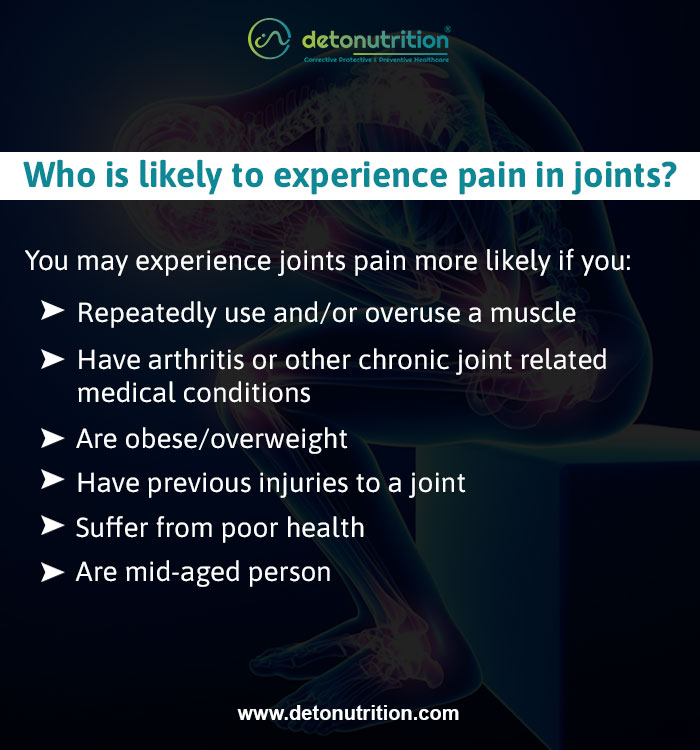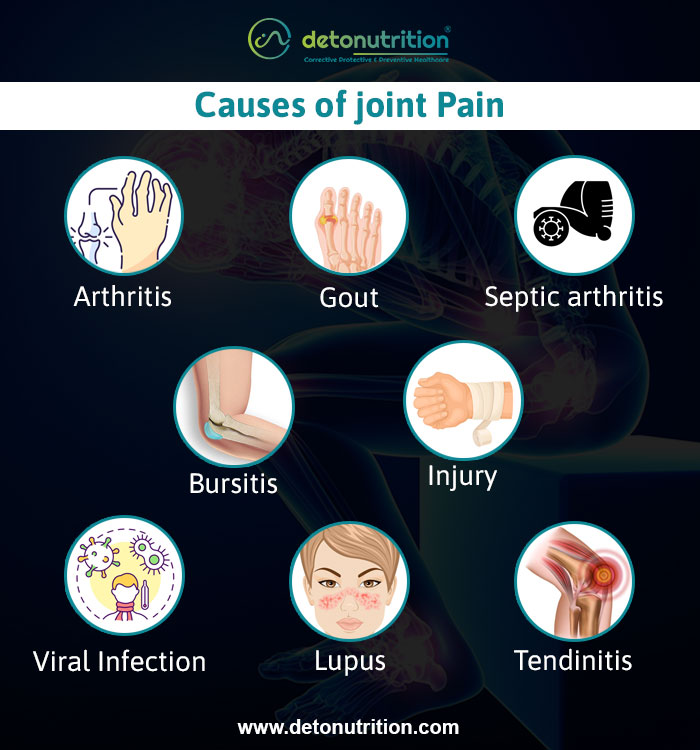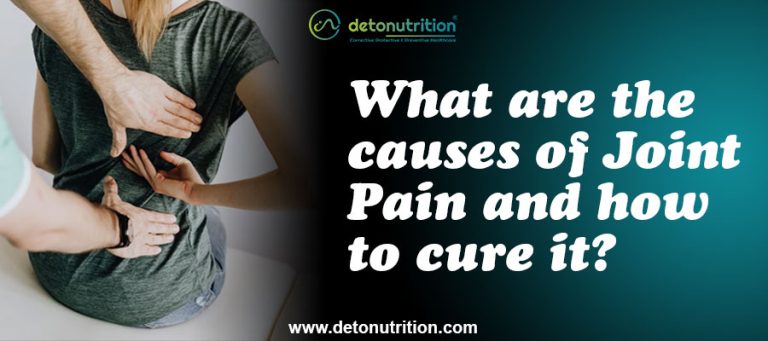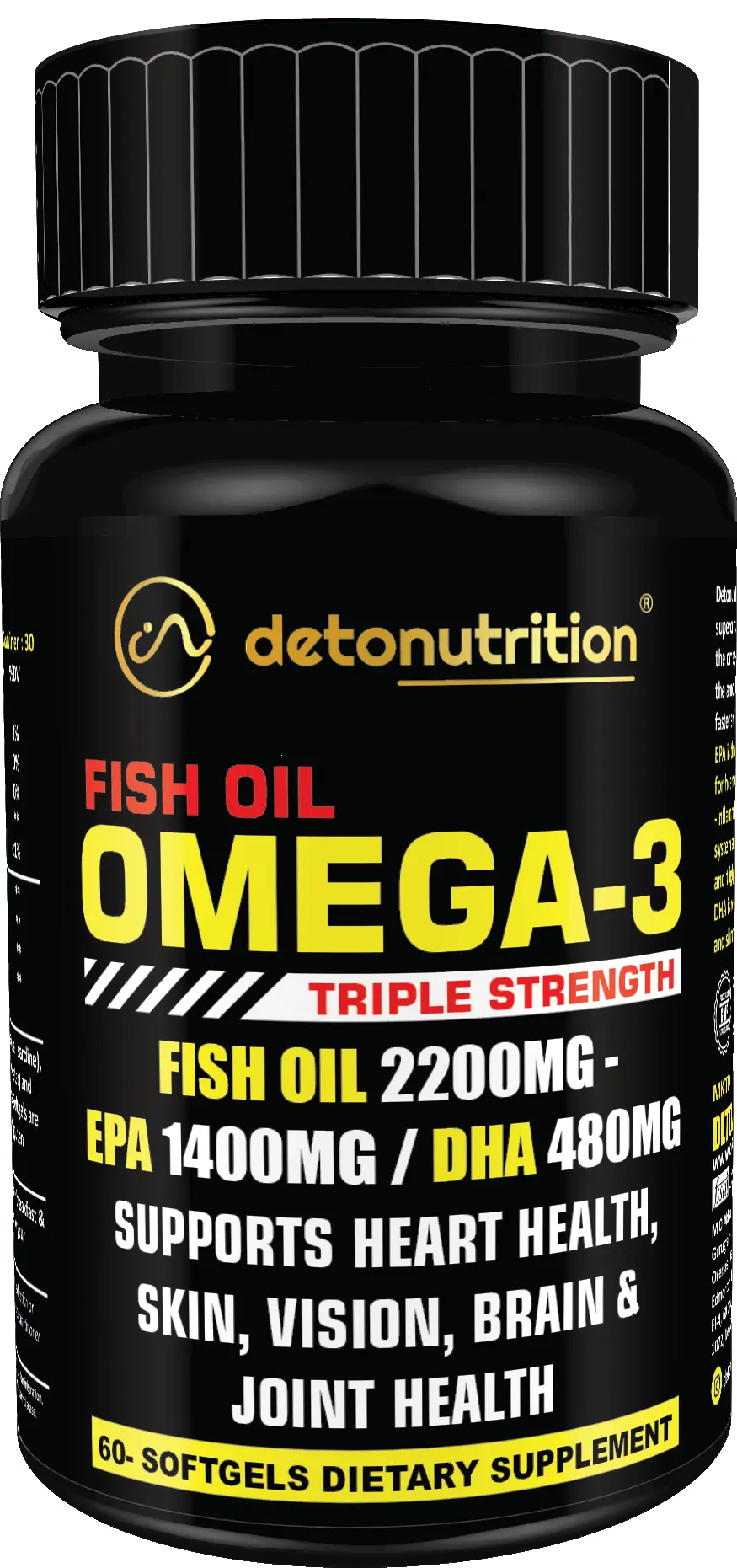What Are The Causes Of Joint Pain And How To Cure It?
Your Joints are the most important part of your body as it forms the connection between bones and help your limbs to move. Joints include shoulders, spine, knees, hands, feet, elbows, and hips. Damage caused in any joint can affect your ability to move or to do daily activities. Joint pain is common nowadays and can be felt in more than one part of your body. The pain may be constant or it may just come and go for a few minutes depending up on the factor of joint pain. Factors of joint pain include weight, age, previous injury history, and other medical conditions. There are many causes of joint pain that affect the ability of joints to function properly and refer to soreness, discomfort, or aches in joints.
Many people experience burning, grating, or throbbing sensations in their joints and feel little stiffness in the morning. However, they feel better when you do some exercises. Constant joint pain can affect your quality of life and that’s why it’s important to treat them properly. Its treatment should not only focus on the pain but also on the affected functions and activities. Read on to know more
Read This Article - 10 Ways To Improve Your Joint Health While Exercising
Who is likely to experience pain in joints?

You may have to experience joints pain more likely if you:
- Repeatedly use and/or overuse a muscle
- Have arthritis or other chronic joint related medical conditions
- Are obese/overweight
- Have previous injuries to a joint
- Suffer from poor health
- Are middle-aged person
Read This Article - Top 5 Exercises To Minimize Joint Pressure & Strengthen Your Joints (For Gym Rats)
What are the symptoms of joint pain?
Symptoms that commonly accompany joint pain include:
- Joint Tenderness
- Limited Joint Movement
- Stiff or enlarged joint
- Swelling in joints
- Numbness
- Felling fatigued
- Noisy joints, or clicking, popping grinding, or snapping sounds when moving the joint
- Painful movement
- Difficulty in bending or straightening the joint
- Loss of motion
- A red, hot or warm to the touch and swollen joint with burning sensation in joints
You should go to the emergency room and consult your doctor if any of the following occurs:
- Your joint is completely immobile.
- Joint appears deformed.
- The joint pain persists for three days or more
- You’ve experienced a serious injury.
- Swelling of the joint occurs suddenly.
- You have severe joint pain.
What causes joint pain?

There are many conditions and factors that can cause joint pain. Usually, joint pain is the result of infection in joints, illness, previous injury, or inflammation.
Common causes of joint pain following below:
1. Arthritis:
The terms arthritis and arthralgia are very similar as both describe joint pain. However, arthralgia always occurs without inflammation in the joint while arthritis always occurs with distinct inflammation in the joints. Nearly half of middle-aged people with arthritis report regular joint pain. There are two main forms of arthritis and that are osteoarthritis (OA) and rheumatoid arthritis (RA).
Many people suffer from rheumatoid arthritis, which is another type of arthritis. It is a chronic joint disease that causes swelling and pain. Many times, the joints especially the joint of fingers and wrists become deformed in rheumatoid arthritis. RA is also known as autoimmune disorder. Rheumatoid arthritis deforms and debilitates all joints over time causes inflammation, pain, and fluid buildup in the joints. This may happen when the immune system attacks the membrane that lines the joints.
Osteoarthritis (OA) is also common in older adults over age 40. It slowly progresses and tends to affect joints. Osteoarthritis commonly affects wrists, hips, hands and knees joints. It more commonly affects women as compared to men.
2. Gout:
Gout is a complex form of arthritis that can affect anybody and mostly affects your big toe joint. This happens due to the crystallization of uric acid. When uric acid gets into the joint spaces (in big toe joint), it cause inflammation and swelling. Uric acid is a type of chemical that is created by our bodies when the body breaks down substances. Gout is a very painful condition as the crystal deposits in the joint cause severe pain and swelling which is unbearable.
3. Septic arthritis:
Septic arthritis mainly results from a bacterial infection. In this, the Bacteria get into the synovial fluid in the joints causing infection that degrades the cartilage and lead to arthritis.
4. Bursitis:
Bursitis affects small fluid filled sacs. Sacs helps to cushion the bones, tendons and muscles of your joints. In this condition, the sacs of fluid get inflamed causing sharp pain and inflammation. It is usually caused by the excessive use of joints. Bursitis commonly occurs in the shoulder, knee, elbow and hip area.
5. Injury:
Injuries related to joints are common cause of joint pain. Injuries can result from the over use or effort of the joints or from an impact that causes a fracture, sprain, or strain. For example, a common knee injury cause due to the damage of ACL ligament. People, who play soccer, basketball, or football, are more at a risk of injuring their knee ligament.
6. Viral infection:
Some viral infections such as hepatitis C virus, Covid-19 may results in joint pain. Viral infections are the main causes of joint pain. This is because of the complications of viral infections. This is relatively common in those people who suffered from HCV and then have rheumatic diseases, which can later cause problem like joint pain.
7. Lupus:
Lupus is a chronic autoimmune disease having common symptoms includes muscle and joint pain. This disease found in those people who have hyperactive immune system which attacks normal, healthy body tissue.
8. Tendinitis:
Tendinitis typically found in the elbow, heel, or shoulder. It is usually caused by the overuse of tendons. Tendinitis typically causes inflammation in the tendons because of excessive use.
How is joint pain treated?
The treatment for joint pain will vary depending on the cause. If the person has arthritis, it is recommended to take joint X-ray to identify it. They may also request a blood test to screen autoimmune disorders.
1. Medication:
Sometimes medication is the best way to treat joint pain. However, it only works for moderate joint pain with swelling. If you have joint pain with swelling you can use ibuprofen, celecoxib, naproxen or aspirin nonsteroidal anti-inflammatory drug for joint pain relief. And if you do not have any kind of swelling but have mild joint pain then acetaminophen can help. But it is important to consult with your doctor before taking any kind of medication, especially if you drink alcohol. High doses may cause some side effects like increase the risk for gastrointestinal bleeding, liver damage.
2. Physical Therapy:
Physical therapy may ease pain and improve joint flexibility. Therapies along with balanced diet strengthen and stabilize the muscles around the joint and improve range of motion. There are various types of physical therapy techniques like heat or cold therapy ultrasound, electrical nerve stimulation, and manipulation. Losing weight can also relieve joint pain as overweight can increase the pressure on your painful joints. You can do exercise to lose weight along with diet, but stick with low-impact exercises that won’t irritate the joint such as swimming, jogging, bicycling etc.
3. Home Care:
For short-term joint pain reliever, you can do simple home care techniques. Rest your joint and avoid any kind of physical activity that causes pain. Protect your joint with a joint brace or wrap. Cold compress your joints with Ice pack for about 15 minutes in a day. Compress your joint using an elastic wrap and try to elevate your joints above the level of your heart.
4. Surgery:
If your joint pain is long lasting and does not lessen with drugs or physical therapy and exercise then surgery is the last option to choose. There are two type of surgical options are available first is arthroscopy and joint replacement.
Related Article - Top 5 Workout Mistakes That Lead To Joint Pain And Tips To Avoid
How Detonutrition’s supplement helps to relieve joint pain?
Our supplements contain herbal ingredients like Boswellia serrate, Vitex negundo, Withania somnifera, Vanda roxburghi that helps in reducing joint pain, inflammation. Not just that, it also strengthen tissues, muscle bone, ligament and helps to maintain Flexibility of Joint Muscle. Within one to four weeks of our herbal supplement usage, you can feel the difference as it repairs ligament wear, tear, increase exercise endurance. It facilitates free joint mobility and relieves pain and inflammation. However, supplement usage depends upon your condition.
If you have normal joint pain and inflammation, then take joint pain supplements for at least two to three day. For back pain, fibro myalgia, sports injuries, sciatica, inflammation of joints etc., you may recommend to take for only one to max four weeks whereas longer treatment is required for rheumatoid or osteoarthritis and for certain chronic joint pains, inflammation.
If you don’t want to take supplement, you can use joint pain relief oil to get long duration relief. Detonutrition’s supplements are safe and also helpful option for those who can’t take non-steroidal anti-inflammatory drugs. According to study results herbal supplements might be worth a try without having any kind of withdrawal effects.
Frequently Asked Questions:
1. What are the Causes of Knee pain in younger adults?
Ans: Osteoarthritis, Tendonitis and bursitis are some causes of knee pain in younger adults.
2. What causes fluid on the knee?
Ans: Common causes of fluid on the knee include arthritis and injury to the ligaments or meniscus.
3. How do you get rid of fluid on the knee?
Ans: By doing cold compression, physical therapy activity and taking supplements, you can get rid of fluid on the knees.
4. What are the signs and symptoms of arthritis?
Ans: Following are the signs and symptoms of arthritis:
- Creaking
- Grinding or snapping noises
- Difficulty in walking.
- Clicking sound
- Changes in joint pain depending on the weather.
5. Is walking best for knee pain?
Ans: Yes, walking is the best option for many patients who are suffering from knee pain and arthritis as it is a low-impact activity and does not put so much pressure on the joints.

We have a vision to take good care of your health and nutrition with products which are made from research and experience. Our team is technical as well as experienced so that we can deliver you the best products for your health and wellness.
Stay Fit, Stay Healthy And Stay Happy Always!
QUICK LINKS
CATEGORIES
Subscribe Us
Subscribe to Dr. Aaditya's Health Blog Email Newsletter
© Copyright - Detonutrition. All Right Reserved 2026.




